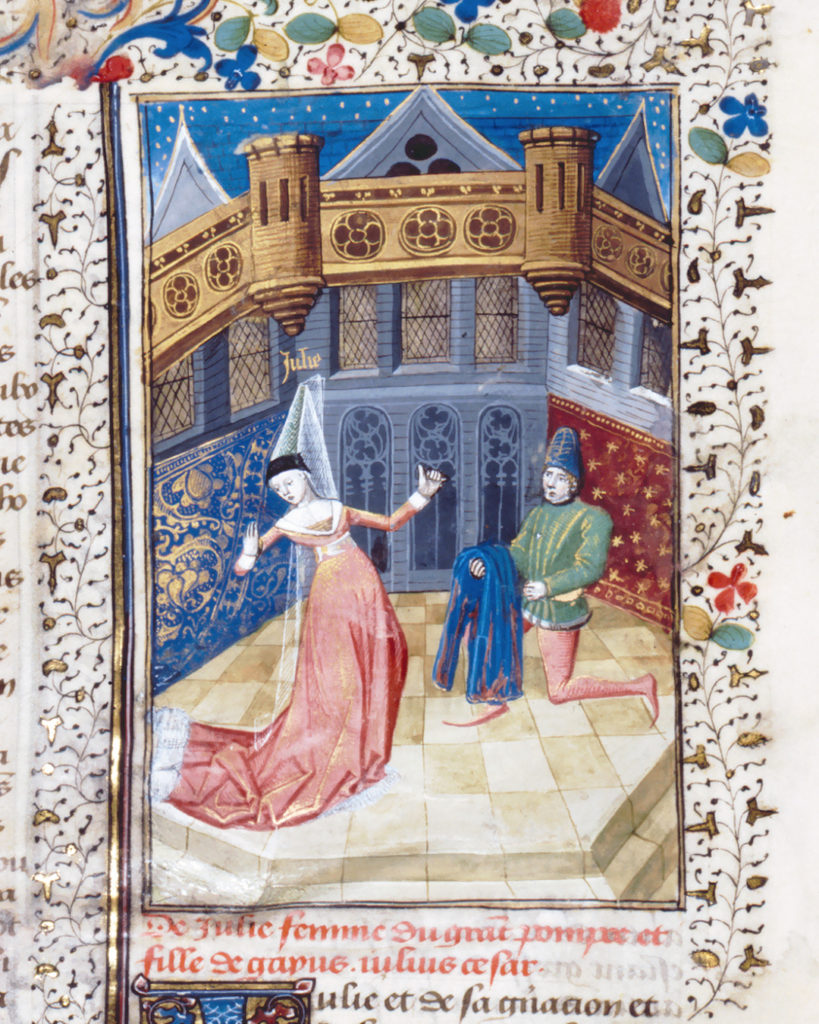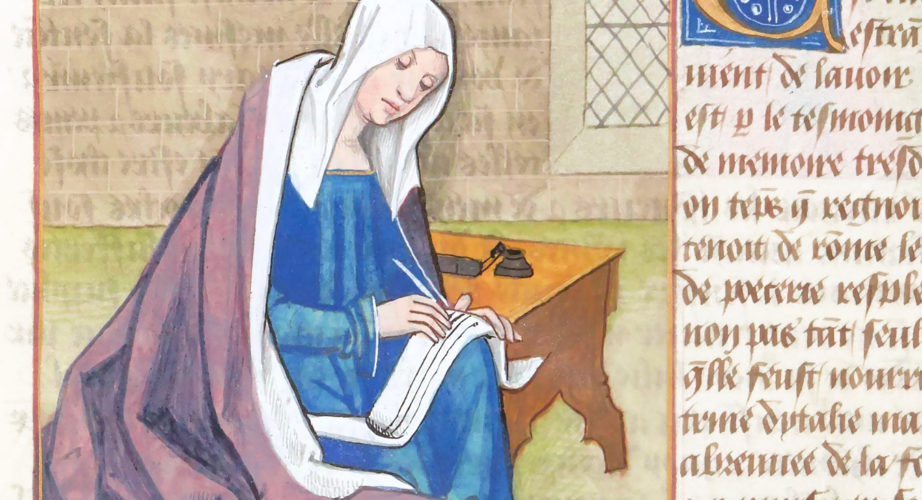Julia

Here we are with yet another Women’s Wednesday! This week’s Mulier Clara may remind you of one of the most well-known love stories of all time: more than two centuries before Shakespeare’s “Romeo and Juliet”, in fact, Boccaccio had written about a love so deep it caused the death of this week’s remarkable woman.
Julia was the only child of Julius Caesar and, even if her life was unluckily short, she had plenty of time to charm all of Rome as well as Pompey the Great. Caesar needed a political ally for the First Triumvirate, so he arranged for Pompey to marry Julia. The bride was seventeen at the time, while the husband was forty-seven; however their age gap didn't stop their marriage from being a very happy one, and Pompey gradually became more and more interested in the joys of domestic life rather than the struggles of political power plays.
Julia was known for being virtuous, kind and beautiful, and she was a devoted wife: it was her very affection for her husband, however, what ultimately caused her death.
In 55 B.C. Pompey was involved in a riot in Rome: the man was not really injured, however his toga was stained with blood. Julia, who was pregnant at the time, saw her husband's clothes in a slave's hands; unaware that Pompey had already returned home and was actually unscratched, she believed him dead and suffered a miscarriage. The shock was so hard on her body that the next year she couldn't survive another pregnancy and eventually died in childbirth. Boccaccio described her love as “most holy” because just the mere thought of losing Pompey was enough to cause permanent damage to her body.
Pompey, as his last act of devotion, wished for her ashes to rest in his favorite villa, but the Roman people protested and had them buried in Rome’s Campus Martius.
"Julia", illumination from the manuscript “Des cleres et nobles femmes”, ms. Spencer Collection 033, f. 50r, ca. 1450, The New York Public Library.
Historically and mythologically speaking, being in a powerful position (and perhaps also a…
The time has finally come for the very first Women’s Wednesday of 2021!…
Welcome back to another Women’s Wednesday! Our weekly Mulier Clara, much like Sappho…


